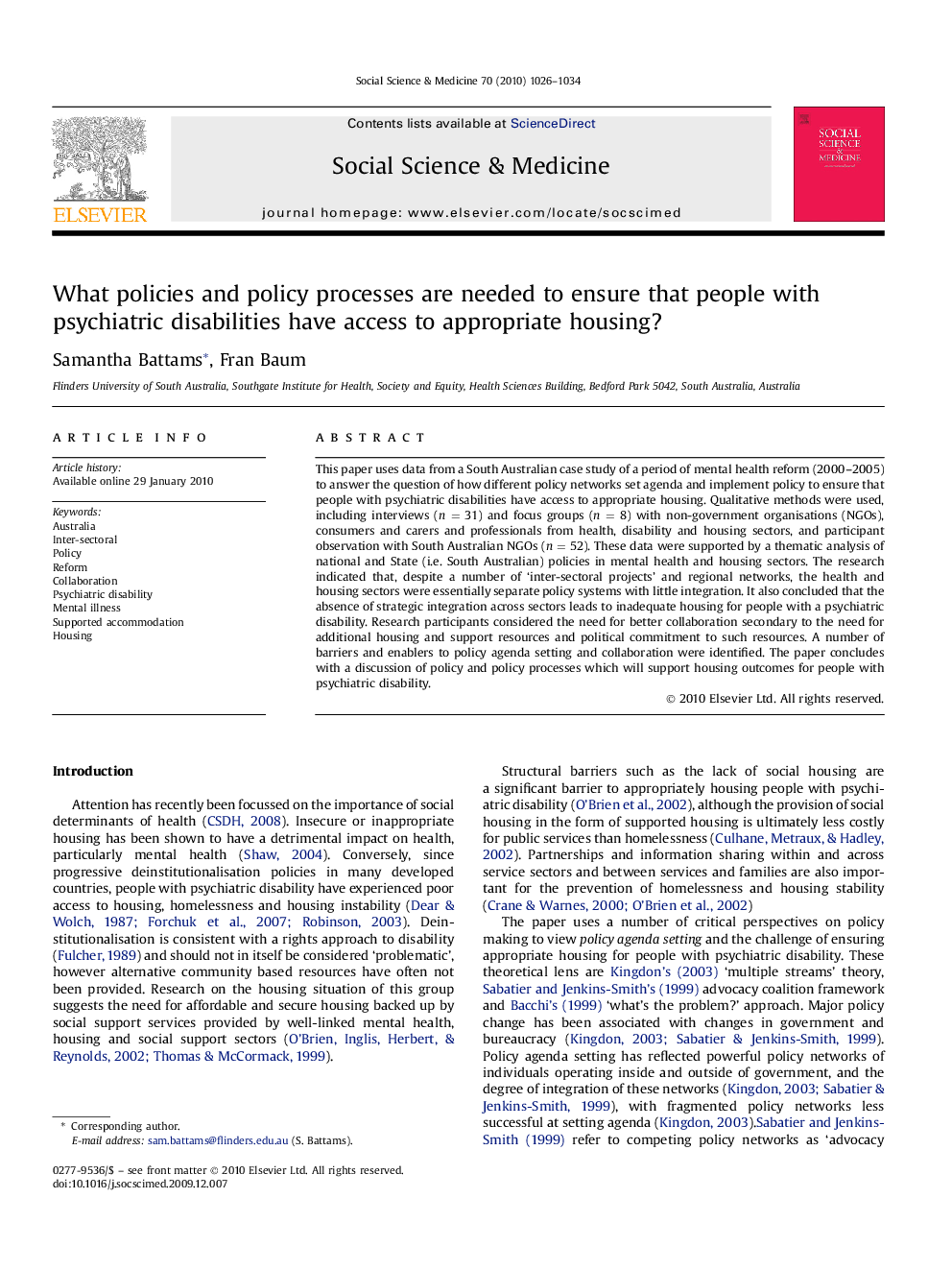| Article ID | Journal | Published Year | Pages | File Type |
|---|---|---|---|---|
| 953192 | Social Science & Medicine | 2010 | 9 Pages |
This paper uses data from a South Australian case study of a period of mental health reform (2000–2005) to answer the question of how different policy networks set agenda and implement policy to ensure that people with psychiatric disabilities have access to appropriate housing. Qualitative methods were used, including interviews (n = 31) and focus groups (n = 8) with non-government organisations (NGOs), consumers and carers and professionals from health, disability and housing sectors, and participant observation with South Australian NGOs (n = 52). These data were supported by a thematic analysis of national and State (i.e. South Australian) policies in mental health and housing sectors. The research indicated that, despite a number of ‘inter-sectoral projects’ and regional networks, the health and housing sectors were essentially separate policy systems with little integration. It also concluded that the absence of strategic integration across sectors leads to inadequate housing for people with a psychiatric disability. Research participants considered the need for better collaboration secondary to the need for additional housing and support resources and political commitment to such resources. A number of barriers and enablers to policy agenda setting and collaboration were identified. The paper concludes with a discussion of policy and policy processes which will support housing outcomes for people with psychiatric disability.
